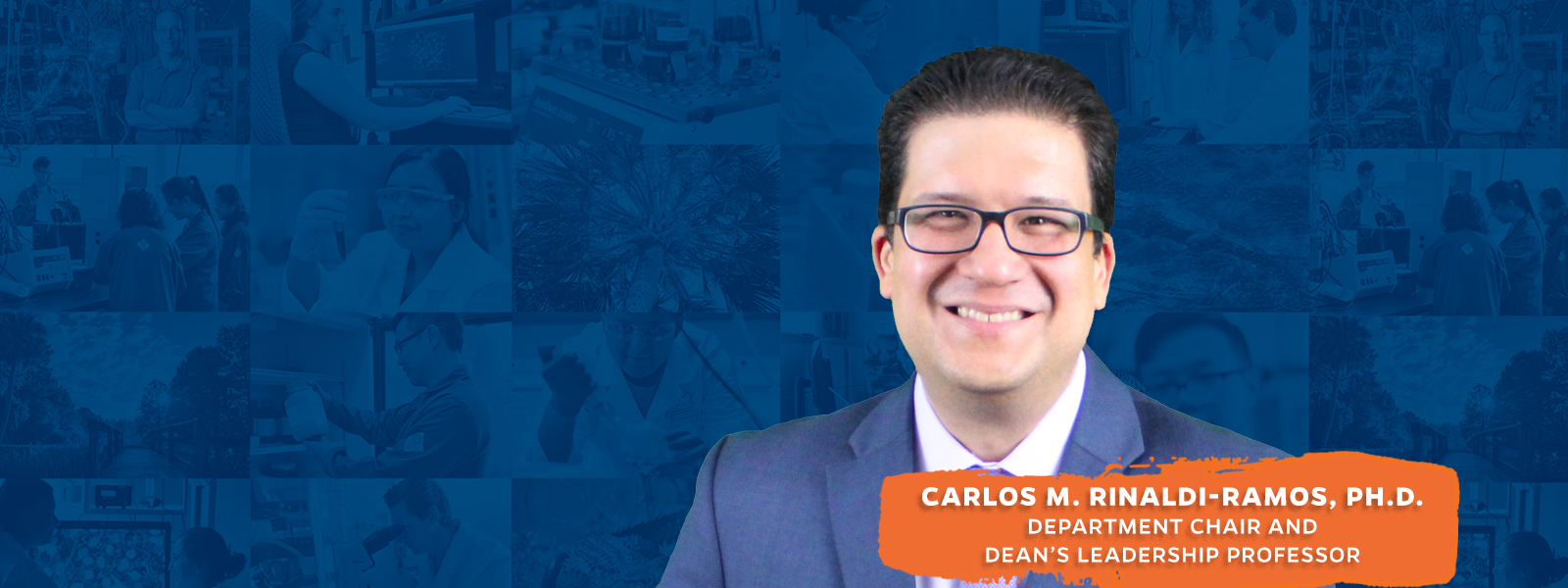Dear Colleagues, Alumni, and Friends,
I hope this message finds you and your loved ones well.
Over recent months we saw vaccination numbers rise and COVID-19 infection rates declining, providing hope for recovery. As such, our efforts have been dedicated to reengaging with our students, faculty and staff and finding meaningful ways to connect with our community.
We are happy to share another edition of our newsletter and celebrate the work we have done over the past semester.
Yeongseon Jang, Ph.D., has received an NSF award to design minimal synthetic cells capable of sensing and self-manipulation. Dr. Jang will collaborate with UF chemical engineering assistant professor, Carl Denard, Ph.D. The project combines the researchers’ expertise in polymer self-assembly, protein engineering, and cell-free synthetic biology for novel synthetic cell development.
The COVID-19 pandemic made it clear that technological innovations were urgently needed to detect, treat, and prevent the SARS-CoV-2 virus. Fan Ren, Ph.D., and a team of researchers developed a rapid and sensitive testing method for COVID-19 biomarkers. Their findings were recently published in the Journal of Vacuum Science & Technology B.
Piyush K. Jain, Ph.D., received a grant from the NIH to develop an early stage, paper-based point-of-care test to detect the Hepatitis C virus (HCV). The project outlines a new approach to detect HCV RNA based on engineered CRISPR/Cas12a systems, coupled with a paper-based lateral flow test.
My laboratory has collaborated with a team of UF researchers investigating the application of nanoparticles as diagnostic and therapeutic agents for joint diseases, such as osteoarthritis. In a recent study published in Science Advances, our research provides new insight into the diffusion of nanoparticles in synovial fluid and their analogues through application of state-of-the-art instrumentation to measure the translational and rotational motion of these tiny materials in complex biological fluid environments.
Sindia M. Rivera-Jiménez, Ph.D., has received an NSF grant to study the agency of engineering faculty involved in professional societies as they create meaningful transformations in their teaching practices while addressing the social implications of the engineering profession.
We have continued the practice of virtual visits with many alumni who have shared their fond memories, encouragement, and stories of success with our students. Through our Alumni Spotlight seminar, Havala O. T. Pye, Ph.D. (BSCHE ‘05), Research Scientist, US EPA, shared with our students how she uses chemical engineering in research at a regulatory agency, and what it is like to work for the federal government.
We are extremely grateful for the dedication shown by our faculty, students, staff, and alumni. Our students continue to meet the challenges presented before them; and our faculty and staff have continued to provide the highest quality chemical engineering education to our students.
While our devoted alumni continue to help students adversely affected by the disruption caused by COVID-19 through the Chemical Engineering Excellence Fund.
Together, we have proven that we can overcome many challenges and that our greatest strength comes from the community and support we share with each other.
We greatly appreciate your continued support, and we can’t wait to hear from you.
Warmest wishes,
Carlos M. Rinaldi-Ramos, Ph.D.
ChE Department Chair and Dean’s Leadership Professor

